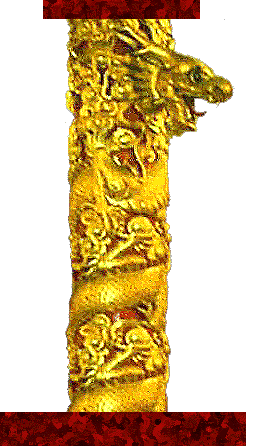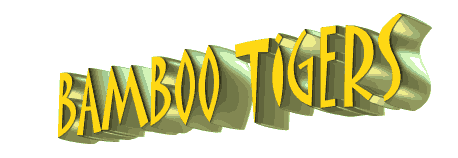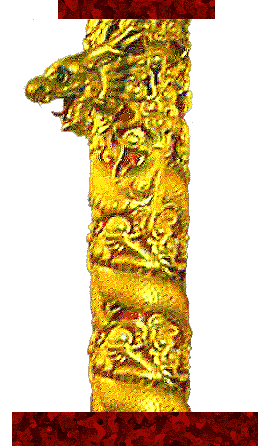| |
The won-ton robbery went down late Friday night and into the early hours of Saturday, January 7, 1978. Dan Foley wrote the scratch on it immediately afterward, when he called Tim Simmons at home about the bandits using Gan Wah Woo's white Chevy. The evening of that day, Saturday the 7th, he came back to the office to pull the night watch again.
The information Stuart Lin had given to John McKenna and Foley the previous Thursday had proved true. The reason for Stuart's talking so much mystified the cops. For one thing, the boy had placed himself in a dangerous position. If the Joe Boys found out he had spilled so many beans, they would kill him, for sure.
The scratch on what Stuart had projected as "Henry Lee's robbery" of the noodle shop had been put out to the Robbery Detail, which resulted in the surveillance fiasco of Friday night. Foley wasn't sure if it had also gone out to Clement D'Amicis' office, as well as to other places within the Police Department.
Clem D'Amicis, Assistant Chief of Police under Charles Gain, was considered dangerous to the investigation, not only by certain members of the Gang Task Force, but also by others in the S.F.P.D. They saw him as the type of person who, like Gain, they said, was capable of dropping privileged information to the press or other agencies to make himself look good or "in the know." For this reason, the haughty D'Amicis was often referred to as "the Prince of Darkness." Some men reasoned, without substantiation and with much evidence to the contrary, that they couldn't trust him, but that's the perverse way people sometimes react to a taut situation. With public pressure weighing heavily on bringing the Golden Dragon perpetrators to justice, chances were doubled that a slip, intentional or otherwise, could be made.
To Foley, the danger inherent in letting out the news to anyone beyond the Gang Task Force that Stuart Lin had turned informant was obvious. He called Ron Schneider at home and asked him how many copies of the scratches relative to the Lin interview had gone out. "Only one," Schneider recalled, "to Robbery," and said he'd check on it Monday.
As Foley had asked him to do, Stuart called the Force the next day, Sunday, January 8th, around noon, so he could find out if the robbery took place. "Can you come down to the office?" Foley asked; "I want to talk to you." Stuart couldn't, but begged Foley to check back at 1. The detective did so. "My father won't let me leave the house," Stuart informed him. "Will you come to my house instead?"
It was Fred Mollat's first day back from vacation, so the two partners drove to the far side of Chinatown where the Asian community mixes with North Beach in the vicinity of Washington Square. Fred parked about a block away, and Foley walked to the house on Filbert.
Several Joe Boys who moved in Stuart Lin's clique lived in that area although they were, technically, part of an "outside Chinatown" gang. Most of its members resided with their parents, and parents tended to live where they needed or wanted to, without concern for or knowledge of their children's territorial problems. For the Joe Boys that close to Chinatown, the chips had to fall where they might.
Infinitely more knowledgeable in these matters than an average gang kid's folks, Foley scooted along the opposite side of the street, fearful for Stuart's safety if one of the boy's associates might see him go into the house. Henry Lee, of won-ton fame, was one whose home was nearby.
Sans cloak and dagger, but packing a .357 Magnum in the holster at his waist, Foley took a quick look east and west to make sure nobody was watching, then scurried across the street and up the wooden steps of a bay-windowed post-Victorian jammed into a row of the same in assorted shades of San Francisco pastels and city-dirty white. Shoulders hunched down, he rang the doorbell. Stuart opened the door.
The beefy kid led Foley up a long flight of stairs. At the top, to the left, lay a dining room next to a kitchen with a little porch. Only later would Foley discover that 12 people shared the apartment: Stuart, his parents, his three younger sisters and a kid brother, a maternal aunt and uncle with their two children, and a grandmother.
Stuart's mother sat sewing at a machine on the porch. He introduced the cop to her as "a friend." Then he turned into a bedroom at the front of the house, identifying it as his. When they got in there, with the door safely shut, Foley said, "I want to talk to you about what happened."
Stuart paled. "The Golden Dragon?"
"No, the robbery!" Foley assured him.
Stuart looked relieved. "Oh! Did you get Henry Lee?"
"No, we got Robert Lui and William Anderson."
Stuart harrumphed. "Aw, he's smart! He got those kids to do it. I wanted you to get Henry!"
"So did I."
Stuart thought it over. "Well, I'll go out with him, and when they have a gun, I'll call you."
Foley shook his head vigorously. "No, I don't want you to get hurt, or anyone to find out you've talked to us." For various reasons, that was the last thing in the world the detective wanted him to do.
To change the subject, Foley asked if he knew a guy named Tony, then whipped out a mug shot and showed it to him. "This guy was picked up, over in Oakland, with Henry and Halfbreed and Melvin Yu."
Stuart recognized the boy in the picture right away. "Yeah. Tony, Tony Szeto. He's got the habit of not talking to me. He hangs around with Tom Yu and Melvin and all the big guys. He works at some fancy restaurant in Chinatown, parking cars. Remember I told you they were gonna park the getaway car in an alley near the noodle shop, and then, after the robbery, they would just walk in there and leave?"
Foley's cheeks reddened a trifle. He realized now that Stuart had been talking about Merchant Alley beside the Chinatown Holiday Inn, into which Robert and No-knock had casually strolled after leaving Mr. Ng's won-ton cafe. Also located in Merchant Alley was a carriage-trade restaurant, the Blue Fox, for which Tony Szeto parked cars.
"Yeah," Stuart went on, "Tony arranges things for them." He sighed. "I don't know why I got involved with them."
Still standing with Foley in the middle of the room, Stuart told him about the first time he went out with his Joe Boy friends, to a picnic in Oakland. "They bought me things. They make you owe them, and then they ask you to do things back for them.
"Y'know, I played soccer when I first came to the United States. My good friend at the time was Helbert Tham. After I started hanging around with Henry Lee, one day I was walking down the street, and Helbert stops me and asks me, 'Are you a Joe Boy?' and I said, 'Hell, no!' But Helbert knows I'm a Joe Boy, and now he's my enemy. I don't know why I ever got involved with them!"
Foley was getting used to Stuart's thick accent and could make better sense out of the things he had to say. There was something pathetically likable about the big youngster. "I want to do something for you for helping us in the robbery," the detective offered.
Stuart mulled it over. "All I want is to go to O'Connell School and get away from Galileo and get a good job because now I'm a good boy."
Foley stood there looking at his desk. He saw a 35mm camera on top. "Oh, you take pictures?"
"Yeah, look here." Stuart pulled out a photo album and showed off pictures of his girlfriend and his family. While looking at them, Foley commented: "I really can't believe you're one of the bad boys. Pictures of gang guys usually show them with weapons and things like that. But, look, there's one of you fishing! Stuart, I just can't believe you're a bad boy."
Looking at the mild-mannered, high-strung kid, it was hard to believe that Stuart was so disastrously enmeshed with the gangs. Foley's paternal nature found it hard to accept, but he knew better, and he devised through his statement to throw Stuart off guard.
The cop knew there was much more to Stuart than met the eye. But there are moments when insight probes deeply through layers of the apparent, the factual, and the supposed to expose a thing previously unseen or as yet unborn. Foley may then have experienced such a moment subliminally, without realizing that he stood on the brink of a truth about Stuart Lin.
Foley and Tim Simmons were to prove themselves past masters of this artless art.
After thumbing through his photo album with Foley for awhile, Stuart suddenly shifted focus. Out of the blue, he remarked, "I've been thinking about the Golden Dragon, and maybe Felix Huey's brother was involved because Felix was killed on the 4th of July."
Foley knew that would be Patrick Huey. Since Stuart had switched the train of thought, the cop asked him if he knew who had a white Chevy. He was referring to Gan Wah's Chevy, recovered from the won-ton robbery. Stuart said he didn't know.
The Gang Task Force was very interested in the car that Stuart, in the January-5th interview with Foley and McKenna, had said he left out at Peter Cheung's apartment for Chester Yu to fix. Since then, Dick Gamble of the Force had located the apartment in Daly City. Records showed that someone had arranged to have it towed from there. Foley wanted the license number so he could determine where it went. "Say, Stuart, that car Chester Yu was going to fix for you and you never got back, what's the license number?"
The boy shuffled through papers in his desk. "Gee, I can't find the pink slip, but it was maroon and had a zero on the plate. It got towed. I ain't seen it since."
Foley threw him a verbal curve. "What more do you know about the Golden Dragon?"
Stuart trembled slightly. "I don't know no more than I told you the other day." He paused. "Well, Gan Wah Woo's the Number One hit man in the Joe Boys, so maybe...." His voice trailed off, but he had grown highly nervous again, as he had during the office interview.
Foley clearly recollected Stuart's alibi for the night of the Golden Dragon, but shammed sudden remembrance at mention of Gan Wah's name: "You said you were with him at Korea House that night!"
Stuart quickly set the record straight: "But that was early. I came home. You can ask my mother."
He got pretty excited at that point, and Foley visualized another bout of the semi-hysteria that had ended the first interview. He wanted to back off a little, but Stuart went on: "He was pretty drunk when I last saw him that night. I told him I was going to wait a few days to get ahold of him."
Foley looked around the room, casting his eyes with obvious interest at a list of phone numbers on the wall. As hoped, this diverted Stuart. He calmed down again and chattered about the numbers and whom they belonged to. One was marked "C.Y.A.." The policeman recognized it as the number of Wayne Yee's Chinese Youth Alternatives, but he wanted to see what kind of reaction he would get from Stuart. "What's this," he feigned, "the C.Y.A. in Stockton? The California Youth Authority?" Stuart said: "No! Don't you know Wayne Yee?" Foley jumped in with, "Is he in the gang?" And Stuart answered: "Yeah. He tells everyone to keep cool and stay out of trouble."
Fidgeting again, Stuart dropped the subject.
Foley picked up the cue. "Well, I better get going," he said, and excused himself with expressions of thanks for all Stuart had done for the Gang Task Force.
Outside the house, Foley glanced in both directions before hurrying to the unmarked car where Fred Mollat waited patiently to hear what he had found out. "Not much," said Foley when he got in, "but it's a start. Geez, wouldn't Stuart shit if he knew about Gan Wah?"
| |
|









